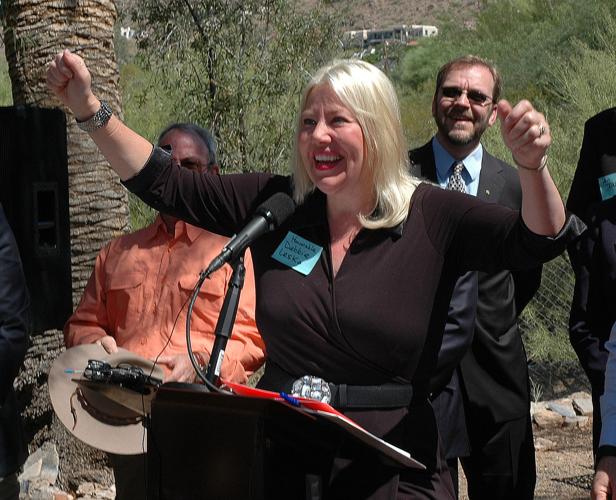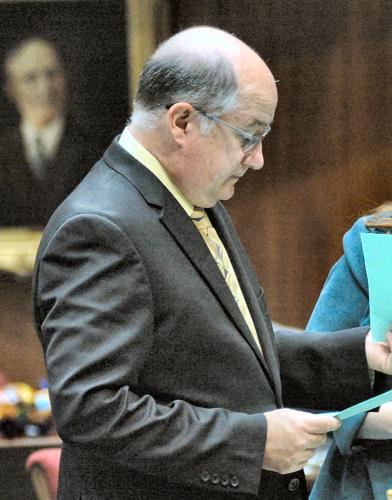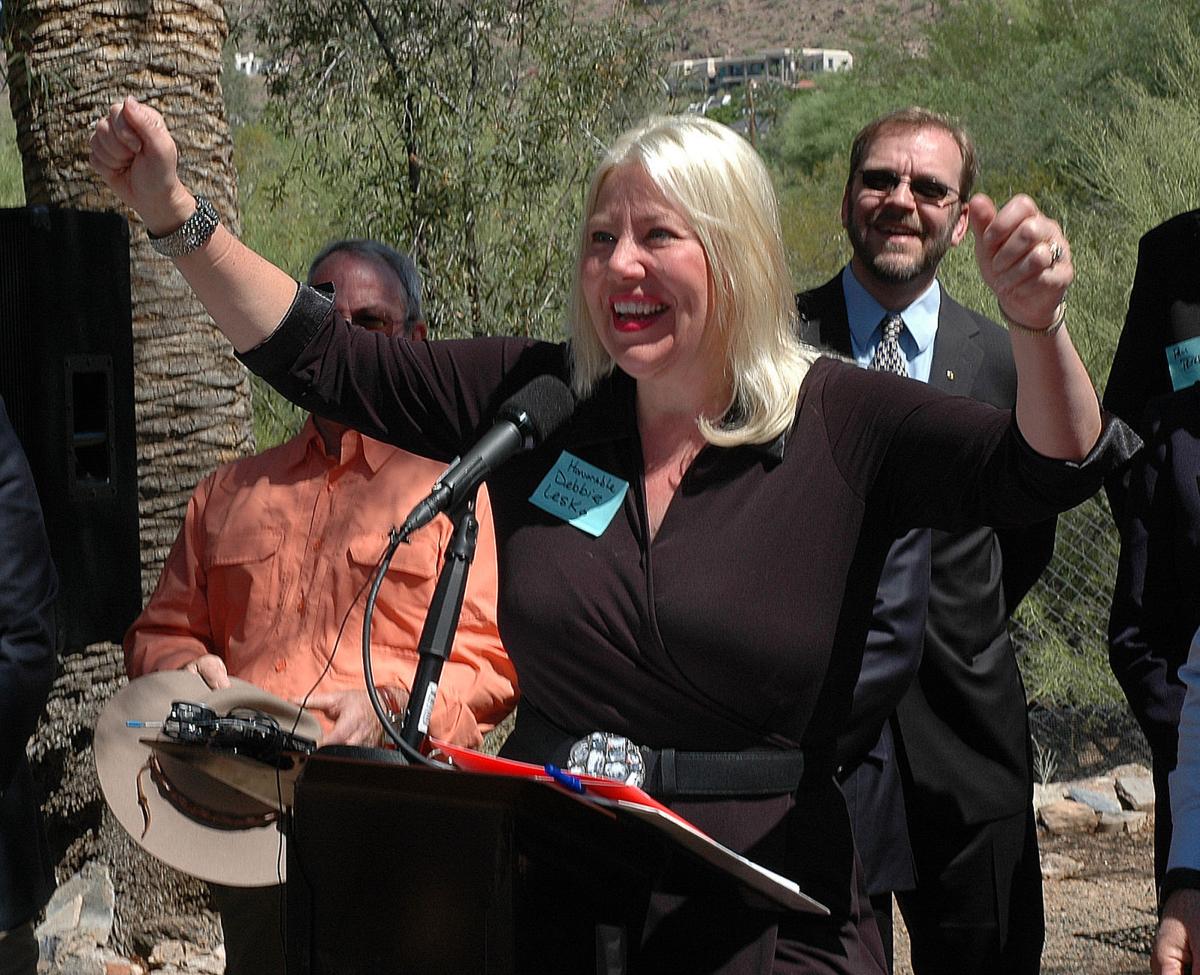PHOENIX — Foes of expanded school vouchers are turning in the signatures Tuesday, Aug. 8, to force a public vote on the plan — unless lawmakers move to undermine the referendum.
Members of Save Our Schools said Monday they have more than 100,000 signatures on petitions to block the new law from taking effect as scheduled Wednesday. If the Secretary of State’s Office finds 75,321 of these are valid, the changes remain on hold until the 2018 general election, when voters would decide whether to ratify or veto what the Republican-controlled Legislature approved.
It might not get that far.
Voucher supporters already are weighting litigation to keep the measure off the ballot.
But the more serious threat could come from the Legislature itself.
The petitions seek to refer SB 1431 to the ballot.
That law scraps the requirement that students seeking a voucher of taxpayer money to attend private or parochial schools must meet certain requirements, like having a disability, being a foster child, living on a reservation or attending a school rated D or F. Instead, it would allow any student to qualify, though the measure has a cap of 30,000 students.
But the Legislature is free to repeal SB 1431 and immediately re-enact it, perhaps with only some minor changes, making the petition drive legally moot. And foes of vouchers, formally known as Empowerment Scholarship Accounts, would have to start over again from scratch to demand a public vote on the new version.
Lawmakers have done exactly that before.
In 2013, opponents of HB 2305 gathered more than 144,000 signatures to force a referendum on a series of changes in election laws that opponents said were designed to depress voter turnout and place roadblocks in the path of those who want to propose their own laws, like limiting who can take someone’s early ballot to a polling place and imposing stricter requirements on citizen groups who are sponsoring initiatives.
More than 110,000 were declared valid, far more than legally required, to force the issue to the ballot.
The next year legislators repealed the law, quashing the initiative.
But that was not the end of it. Since that time, lawmakers have re-enacted virtually all of the same provisions, breaking them into separate bills in a way to make it difficult to refer all of them to the ballot.
A repeat performance is clearly on the minds of voucher supporters, starting with Sen. Debbie Lesko, R-Peoria, who has been the prime proponent.
“All options are on the table,” she told Capitol Media Services during the signature-gathering process when asked about a repeal-and-replace scenario.
And Kim Martinez, spokeswoman for the American Federation for Children that has pushed for vouchers here and elsewhere, also will not take off the table the option of getting lawmakers to undermine the referendum campaign.
“We’re not at a point where we want to talk strategy,” she said Monday.
House Majority Leader John Allen acknowledged that tweaking the law to kill the referendum is an option. But the Scottsdale Republican doesn’t think it’s a good idea politically.
“We would be spending political capital on a circumstance on which we can win straight out,” he said.
Allen, who voted for the voucher expansion, acknowledged the 2014 vote to quash that initiative. But he said the risk is that voters may get fed up with lawmakers doing end-runs around voter proposals and could take away that right.
In fact, he noted, that’s exactly what happened after lawmakers repealed the state’s first medical marijuana act approved at the ballot in 1996. The result was the 1998 approval of the Voter Protection Act which constitutionally bars the Legislature from repealing or sharply altering anything that voters have enacted.
Allen said the path to killing the referendum is the right kind of public relations campaign.
“The opposition (to voucher expansion) is called ‘Save Our Schools,’” he noted.
“It’s not ‘Educate Our Kids,’” Allen continued. “This is about the status quo educational system versus the things we’re going to have to do in the future to get quality education.”
Martinez, however, said her group is hoping the issue never gets to a campaign — even if it has to go to court to do that.
The first question is whether the secretary of state determines there are enough valid signatures.
Martinez noted that Save Our Schools relied largely on volunteers who, unlike paid circulators, may have gathered names of people who are not registered to vote or filled out the forms improperly.
It is not unusual for these kinds of petition drives to have an invalidity rate of 25 percent or more. Martinez said that even with voucher foes claiming to have more than 100,000 signatures, the petition drive could still come up short after the review process by the secretary of state.
And what signatures election officials do not invalidate, her organization is preparing to go to court to eliminate.
“They have likely made a lot of mistakes along the way,” Martinez said. “And we have many examples of signatures that they’ve gathered improperly.”







